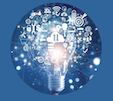Description
The IceCube Neutrino Observatory (IceCube) uses a cubic kilometre of the Antarctic ice sheet to detect neutrinos. IceCube carries out neutrino oscillation measurements using atmospheric neutrinos. Furthermore, it contributes to multi-messenger astronomy, searching for the extragalactic origins of neutrinos. All this interesting research relies on accurate neutrino classification and reconstruction methods. Therefore a Graph Neural Network (GNN) was developed by Rasmus Ørsøe, supervised by Troels Christian Petersen, and has been further developed as the open-source Python framework GraphNeT. The GNN has been shown to outperform existing methods on low-energy Monte Carlo neutrinos, while simultaneously speeding up the process by several orders of magnitude. This presentation shows that the GNN not only works in Monte Carlo, but can also select a large clean neutrino sample in actual data. Neutrino samples from Monte Carlo and real data are compared across a wide range of reconstructed and calculated variables. Finally, the number of neutrinos in the clean GNN selection is compared to the existing methods in the IceCube Oscillation workgroup, indicating that the GNN method can generate a more extensive sample at a similar purity. Implementing the GNN in IceCube could increase the neutrino rate and open up the possibility of creating early warnings for electromagnetic telescopes using low-energy neutrinos.
| Field of study | Computational Physics |
|---|---|
| Supervisor | Troels Christian Petersen |

